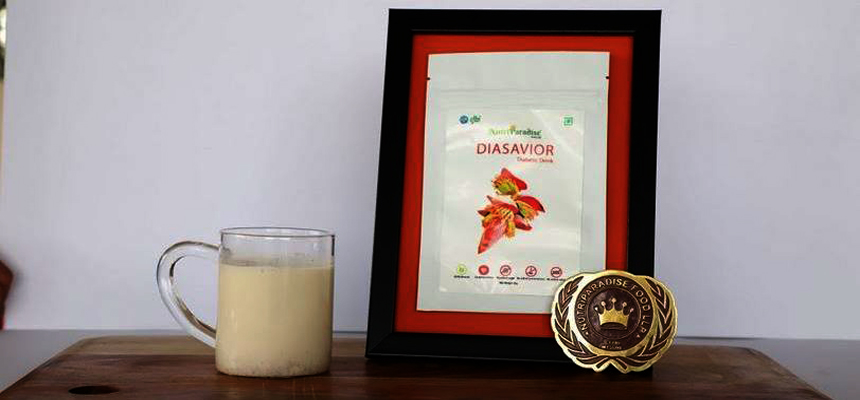Promote cadaver donation

Every year, over 16,000 patients across Andhra Pradesh and Telangana state reach end-stage kidney failure and about an estimated 1,000 patients get transplants done either from cadaver or from a live donor. An estimated 1,000 patients get transplants done either from cadaver or from live donors.
“A cadaver can provide organs for 33 patients. This also stops kidney patients from undergoing painful dialysis,” says Amitava Sinha Roy, who was on dialysis for seven years before he got a donar.
According to a 2007 report by the World Health Organisation, around 2,000 Indians sell a kidney every year. Dr Pradeep Deshpande, professor of nephrology at Gandhi Hospital, says: “The touts are able to exploit extremely sick patients who urgently need money for medical expenses or who require money to support family after their death.”
Experts have many suggestions to bridge the huge gap between the demand and supply of kidneys - from making sale of kidneys legal to making in compulsory following accident deaths. Dr Alla Gopala Krishna Gokhale, cardiac surgeon, Apollo Hospitals, also one of the first doctors in Andhra Pradesh to perform a successful human-to-human heart transplant and first successful lung transplant, says, “The only way to stop organ trafficking is to promote cadaver donation. So many accidents happen in the country. Several people have brain injuries. If we are able to encourage cadaver donations we may be able to meet requirements. The government should also provide some incentives in case of poor donors.”
The Organ Transplant Act 1994 is aimed at regulation of removal, storage and transplantation of human organs for therapeutic purposes and for prevention of commercial dealings in human organs. Why not make it legal and put a curb to trafficking? Argues Dr Gokhle, “People from small places call us and say, they want to donate organ because they need money. When we don’t encourage them they approach touts, who make money out of it why not make it legal? That way, the donor can directly approach the recipient who in turn can take care of the donor. What’s wrong if a relative or friend wants to save someone’s life, who is on the death bed? We need to make it legal to see the difference.”
With about two lakh patients and only 5,000 transplants presently in a year, the demand-supply gap is huge. Only 10 per cent of the two lakh patients, who are on dialysis per year, are able to get kidney donors on time. Currently there are about 200,000 patients suffering from end-stage renal disease (ESRD) in India. Approximately 7,000 patients suffer from ESRD in Telangana and 16,800 patients suffer from ESRD in Andhra Pradesh, so approximately there are about 23,000 to 24,000 patients suffering from ESRD in both the states.
According to Dr Gandhe Sridhar, chief consultant nephrologist and kidney transplant physician, Global Hospitals, “Even though transplantation is the best option available, only 5-10 per cent opt for it and remaining 90-95 per cent are on dialysis. The reason for this is lack of donors. Source of kidneys for transplantation is either cadaver donor or live, related donor. But, most patients on the cadaver list die waiting for a kidney. For successful renal transplant, the routine protocol is that the blood group of the donor and the recipient must match. Otherwise, it leads to rejection of the graft immediately. In some families, even though the related donor is willing to donate a kidney and is deemed to be medically fit, they are rejected because their blood groups do not match. This happens in approximately 30 per cent cases.”
Progress towards better donation plans too have been hit as there is a major shortage of organs and awareness. Despite Jeevandan being introduced in TS and AP there have only been 229 donors so far who have donated 984 organs. Of these 400 were kidney, 221 liver, 169 cornea , 162 heart valves , 22 heart, five lungs and five pancreas.
“Deceased organ donation is yet to be streamlined in our country. A centralised registry in the form of a readily-available database for people involved in organ donation is not there. Tamil Nadu leads in organ donation, where the state government has created a very proactive environment. Now Telangana, Andhra Pradesh, Karnataka and Kerala are also improving significantly. In Telangana, Jeevandan is doing excellent work in promotion of organ donation among public and also in training counsellors,” says Dr K. Ravindranath, chairman, Global Hospitals Group, Comprehensive Multi-Organ Transplant Centre.
![]() The other option
The other option
With increasing cases of chronic kidney disease in India and dialysis not being perceived as a long-term option, patients have no option but to undergo transplants. But with about two lakh patients and only 5,000 transplants presently in a year, the gap is huge. In such a case, where patients have limited options they are left with; touts or a trip abroad. But Dr Gulati, vice-president of the Indian Society of Organ Transplant, Director of Nephrology at Fortis Hospital, New Delhi, suggests the government of India should have the Spanish model of 'opt-out' cadaver donation. “The moment anyone applies for his or her driving license there is this option of `opt-out’, where organs of all cadavers are automatically donated unless the deceased has voluntarily opted out, can be emulated. India needs such a system that pushes cadaver donation, especially as accident deaths are high in our country."
![]() Are we equipped?
Are we equipped?
The diagnosis of brain death and subsequent donation is possible only in ICUs. But such ICUs are few - only found in major city hostpitals. “The determination of brain death and requesting consent is often given low priority and brain-dead patients are treated with ‘benign neglect’,” says a top expert on the matter.
![]() Myths:
Myths:
![]() Organ donation will mutilate the body: In fact, when well-trained surgeons retrieve organs the body is not mutilated.
Organ donation will mutilate the body: In fact, when well-trained surgeons retrieve organs the body is not mutilated.
![]() My religion does not support donation: Virtually all religions approve of organ and tissue donations.
My religion does not support donation: Virtually all religions approve of organ and tissue donations.
![]() Cost of dialysis
Cost of dialysis
![]() In a private set up, the cost of dialysis varies from Rs 1,500 to Rs 3,000 per dialysis and a minimum of 12 such procedures are needed every month.
In a private set up, the cost of dialysis varies from Rs 1,500 to Rs 3,000 per dialysis and a minimum of 12 such procedures are needed every month.
![]() Under Aarogyasri, the cost of dialysis is Rs 1,200 per dialysis, which is refunded by the government.
Under Aarogyasri, the cost of dialysis is Rs 1,200 per dialysis, which is refunded by the government.
![]() Cost of kidney transplant:
Cost of kidney transplant:
COST OF DIALYSIS IN A PRIVATE HOSPITAL: Rs 3,000 - Rs 3,200 per session. A patient needs three four-hour sessions per week lifelong or until he/she undergoes a transplant. Then, there are medicines which are expensive. The cost varies per patient but could go up to Rs 15,000- Rs 20,000 per month.
COST OF TRANSPLANT IN A PRIVATE HOSPITAL: Rs 5.25 lakhs for a 10-day package, including surgery and hospital stay. Pre-surgery tests will cost Rs 1.25 lakh - Rs 1.5 lakh.
Among the various cadaver transplants, the cornea is utilized by eye institutions. The other most common organ utilized is kidney. Utilization of liver is also slowly gaining acceptance. But other organs like lungs, heart, and intestine are rarely harvested.
“In foreign countries, most transplants are dependent on deceased donors. For example in the US alone, around 6,000 liver transplants were completed by harvesting organs from deceased donors. Our population is four times that of the US and we ought to be doing about 24,000 transplants. But in reality we do just over 250 liver transplants from deceased donors and approximately 1,200 living donor liver transplants are done across the country annually,” says Dr Balbir Singh, senior consultant, department of HPB and Liver Surgery, Global Hospitals

 Disclaimer: Welthi.com does not guarantee any specific results as a result of the procedures mentioned here, and the results may vary from person to person.
Disclaimer: Welthi.com does not guarantee any specific results as a result of the procedures mentioned here, and the results may vary from person to person.









